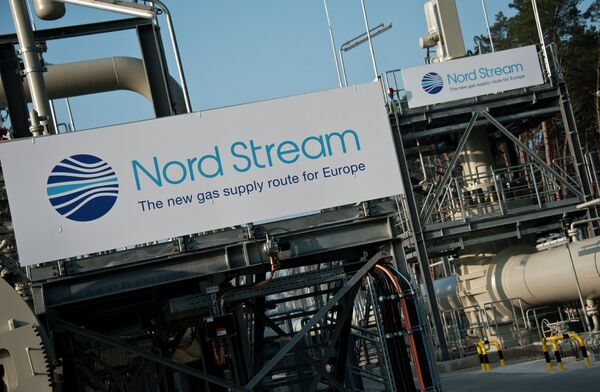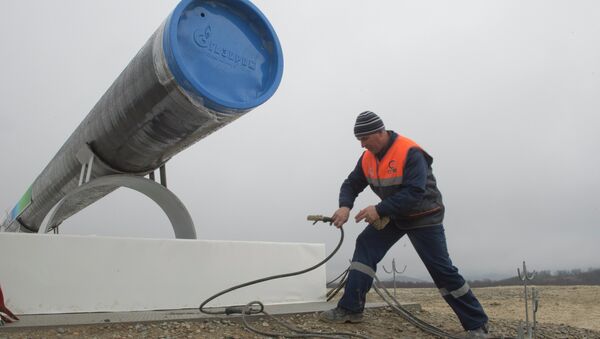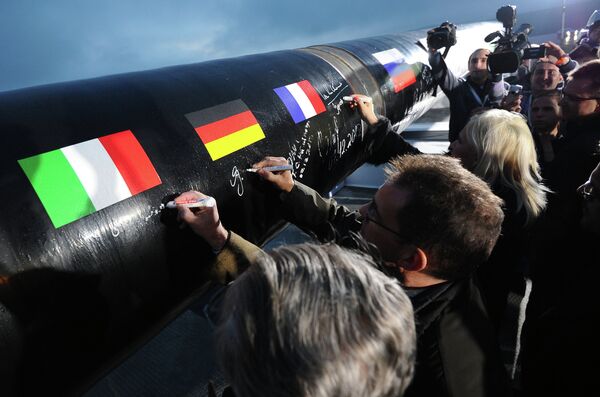MOSCOW (Sputnik) — In December 2014, Moscow announced the cancellation of its South Stream pipeline project that was to transport Russian gas across the Black Sea to Europe. Russia cited the "non-constructive" stance of the European Union as the reason for scrapping the project.
The European Commission claimed that the project would violate the EU Third Energy Package that prohibits simultaneous ownership of both the gas and the pipeline through which it flows.
"Turkish Stream is taking South Stream’s place. It’s not proceeding as fast as we’d like, but it’s not stalled either. And then we thought of building a second Nord Stream line, which delivers Russian gas to Germany across the Baltic Sea. You probably heard that we have signed a memorandum between our companies to increase the gas volume via Nord Stream. So Europe’s energy security will be guaranteed," Medvedev said in an interview with Slovenian radio and television company RTV Slovenija on the eve of his visit to Slovenia.
The first two strings of the Nord Stream pipeline have been operational since 2011 and 2012 respectively, with the annual gas throughput of 55 billion cubic meters.
Gazprom announced on June 18 that it was planning to build two additional strings of the Nord Stream from Russia to Germany in a joint project with E.ON, Shell and OMV with an estimated cost of 9.9 billion euros ($11.2 billion).
Nord Stream's target markets include Germany, the United Kingdom, the Netherlands, France, Denmark and other countries.




